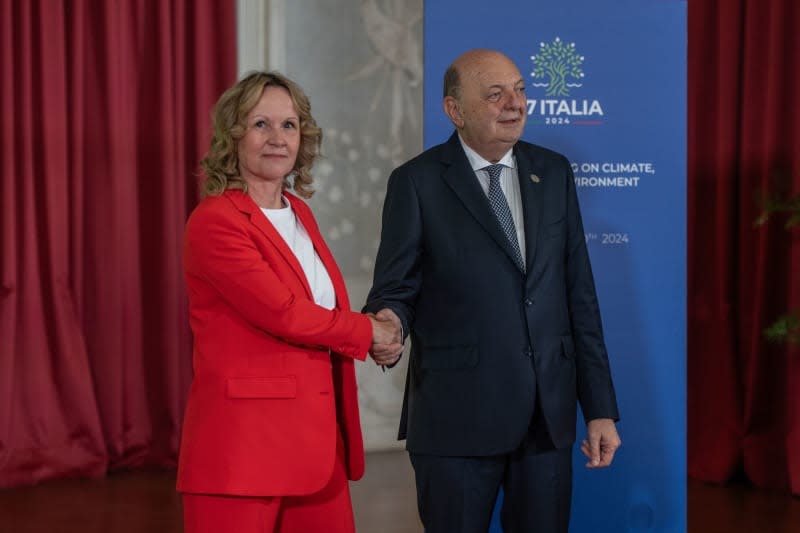G7 support UN agreements on plastic, protection of the high seas

- Oops!Something went wrong.Please try again later.
The Group of Seven (G7) leading Western industrialized nations are supporting an ambitious UN agreement to reduce plastics, a German minister said on Tuesday.
"As industrialized countries, we have a special obligation to curb the effects of the massive pollution crisis. As G7 countries, we are committed to reducing global plastic production and consumption," German Environment Minister Steffi Lemke said at the meeting of the G7 climate, energy and environment ministers in Italy.
The G7 also wants to rapidly ratify the UN Convention on the Protection of the High Seas.
"We depend on healthy oceans to combat the climate crisis, the pollution crisis and the crisis of species extinction. The UN Convention on the Protection of the High Seas BBNJ [Biodiversity Beyond National Jurisdiction] is the first set of rules to protect biodiversity in the world's oceans," Lemke said.
Protected areas on the high seas need to be designated quickly in order to place 30% of the world's oceans under strict protection, she said.
"Here in Turin, we as the G7 are making a clear commitment to the agreement and pledging to ratify it quickly by June 2025. The agreement can only enter into force once 60 states have ratified it," said Lemke.
She also welcomed the establishment of the G7 Water Coalition. "We need common strategies and goals to protect our global water resources. Last year's UN Water Conference created unprecedented political momentum in the water sector. We want to use this together to advance integrated water management globally," said Lemke.
At their meeting on the outskirts of Turin on Monday, the ministers already agreed to phase out coal by 2035.

